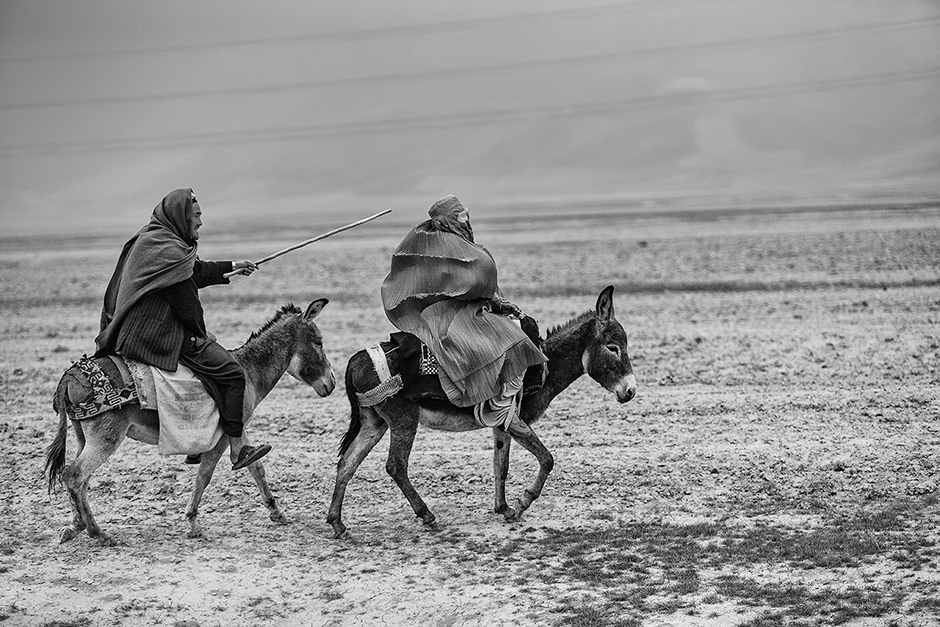In response to:
Afghanistan: ‘A Shocking Indictment’ from the November 6, 2014 issue
To the Editors:
Rory Stewart’s “Afghanistan: ‘A Shocking Indictment’” [NYR, November 6] sets forth in some detail much that has gone terribly wrong in Afghanistan in the last thirteen years, often the fault of the United States and its allies. I am sure his sources and those of Anand Gopal, the author of the book Stewart is reviewing, are accurate. Stewart concludes that not only the effort but the philosophy of “improving governance,” which has been guiding the international community’s and also the new president’s efforts in Afghanistan, have failed and should not be pursued anymore. He belittles what progress has been made in Afghanistan. He doesn’t recognize the tremendous gains in life expectancy, in economic growth, in security, in education (yes, there is a shortage of teachers, but progress nevertheless from K to 12 and higher education, such as the American University of Afghanistan), or in a remarkably open media. This progress has been achieved in a country that, as of 2001, had been totally destroyed economically, politically, and socially.
Even more striking is Stewart’s failure to tell his readers what he would do. Is he prepared to abandon Afghanistan as was done by the international community in 1989 after the Soviets left, opening the way for the Taliban to take over? Does he not fear that the horrors compiled by Mr. Gopal might be much greater if we were to leave again? His lack of respect for the future of the Afghan people and for those foreigners, including from the UK and the US, who have given their blood and treasure to help Afghanistan become a stable and progressing nation is not only unwise but immoral.
Theodore L. Eliot Jr.
Former US Ambassador to Afghanistan
Sonoma, California
Rory Stewart replies:
Ambassador Eliot asks what I would do. I have tried to answer the question at length in The New York Review (see for example “Afghanistan: What Could Work?,” January 14, 2010) and in my book Can Intervention Work? (Norton, 2012). We should not ‘‘abandon” Afghanistan, and there is a lot of good sense in the current US strategy of providing humanitarian assistance, containing the terrorist threat, and supporting a political solution.
Ambassador Eliot argues that it is “unwise” and “immoral” to question the last twelve years, because of the “blood and treasure” that have been spilt. This is exactly the mindset that prevented any objective analysis of our failures, and encouraged us to repeat mistakes and to “surge” in pursuit of an impossible mission. I won’t repay Mr. Eliot’s compliment by calling his position “immoral,” but I would certainly call it unwise.
Our interests, and the interests of Afghans, should not be based on moral guilt, but on a careful analysis of the costs and benefits of our actions. The cost has been a trillion dollars, and tens of thousands of lives. The benefits, as Mr. Eliot points out, have been “in life expectancy, in economic growth, in security, in education…or in…open media.” But even these achievements are more modest than we once hoped.
Statistics on life expectancy are unreliable. More Afghan soldiers and police have died in the last six months than in any period since the start of the war. The economy has collapsed by 30 percent since the beginning of the year. Gains in education have been far less than we once believed, due to systematic corruption and misreporting of statistics. (As Anand Gopal points out in his book No Good Men Among the Living: America, the Taliban, and the War Through Afghan Eyes, 85 percent of the “schools” of which we once boasted in Ghor simply don’t exist.) Similar improvements could have been achieved with far less “blood and treasure.” And the opportunity cost has meant that we have neglected our security interests and our moral obligations in many other countries around the world.
As for his claim that I lack respect for Afghanistan and its people, I founded a charity, Turquoise Mountain, that has restored over a hundred buildings in the old city of Kabul, created a primary school, a health clinic, and the country’s largest craft institute, and continues to support thousands of Afghan livelihoods. Nothing I have done has given me as much fulfillment, and I find Afghanistan still one of the most impressive countries on earth. But that is very different from approving the surge, or endorsing the impossible chimera of “nation-building under fire.”
To the Editors:
Is Rory Stewart prepared to abandon Afghanistan as was done by the international community in 1989 after the Soviets left, opening the way for the Taliban to take over? Does he not fear that the horrors compiled by Mr. Gopal might be much greater if we were to leave again?



